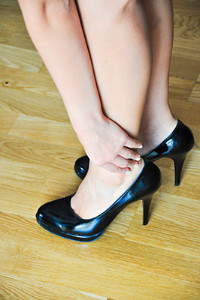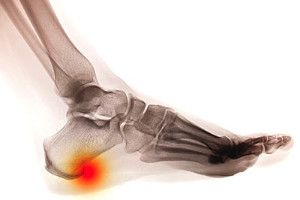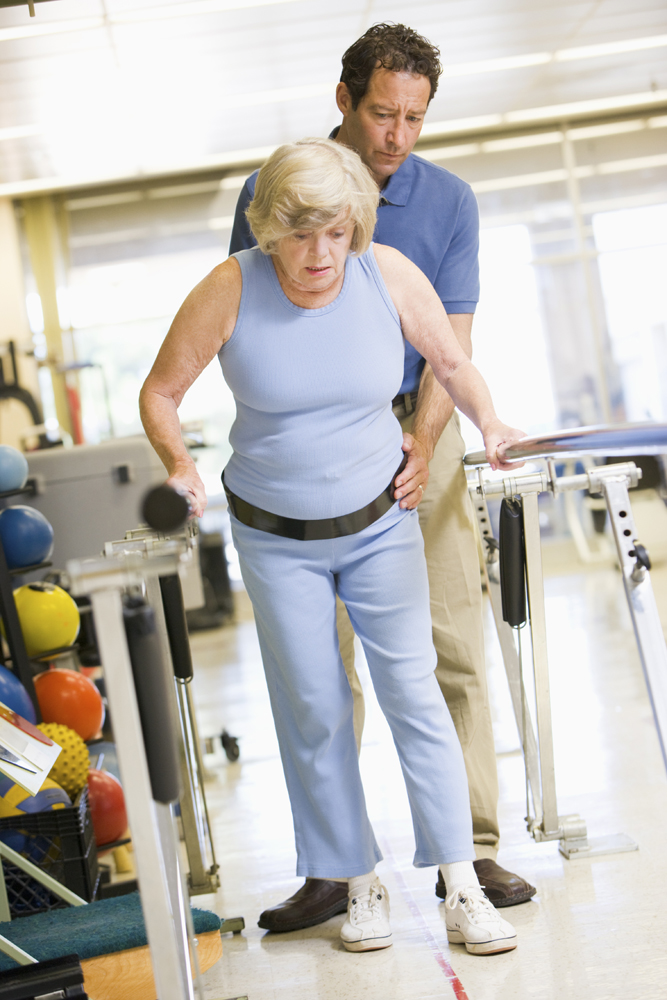North Andover (978) 686-7623
Tewksbury (978) 640-1010
Blog
May 2018
 Washington Nationals infielder Howie Kendrick recently tore his Achilles tendon in the first game of a doubleheader against the Los Angeles Dodgers. Kendrick was seen walking on crutches while wearing a walking boot in the Nationals’ clubhouse after the game. This is expected to be a season-ending injury for Kendrick and he states, “I really knew there was something wrong with it because I couldn't control my heel at all, so that's when I knew it was probably my Achilles.” He was immediately placed on the 10-day disabled list and was replaced on the roster by right-hander Jefry Rodriguez from the Nationals’ Double-A affiliate in Harrisburg.
Washington Nationals infielder Howie Kendrick recently tore his Achilles tendon in the first game of a doubleheader against the Los Angeles Dodgers. Kendrick was seen walking on crutches while wearing a walking boot in the Nationals’ clubhouse after the game. This is expected to be a season-ending injury for Kendrick and he states, “I really knew there was something wrong with it because I couldn't control my heel at all, so that's when I knew it was probably my Achilles.” He was immediately placed on the 10-day disabled list and was replaced on the roster by right-hander Jefry Rodriguez from the Nationals’ Double-A affiliate in Harrisburg.
Achilles tendon injuries need immediate attention to avoid future complications. If you have any concerns, contact one of our podiatrists of Foot Health Center of Merrimack Valley. Our doctors can provide the care you need to keep you pain-free and on your feet.
What Is the Achilles Tendon?
The Achilles tendon is a tendon that connects the lower leg muscles and calf to the heel of the foot. It is the strongest tendon in the human body and is essential for making movement possible. Because this tendon is such an integral part of the body, any injuries to it can create immense difficulties and should immediately be presented to a doctor.
What Are the Symptoms of an Achilles Tendon Injury?
There are various types of injuries that can affect the Achilles tendon. The two most common injuries are Achilles tendinitis and ruptures of the tendon.
Achilles Tendinitis Symptoms
- Inflammation
- Dull to severe pain
- Increased blood flow to the tendon
- Thickening of the tendon
Rupture Symptoms
- Extreme pain and swelling in the foot
- Total immobility
Treatment and Prevention
Achilles tendon injuries are diagnosed by a thorough physical evaluation, which can include an MRI. Treatment involves rest, physical therapy, and in some cases, surgery. However, various preventative measures can be taken to avoid these injuries, such as:
- Thorough stretching of the tendon before and after exercise
- Strengthening exercises like calf raises, squats, leg curls, leg extensions, leg raises, lunges, and leg presses
If you have any questions please feel free to contact one of our offices located in North Andover, and Tewksbury, MA . We offer the newest diagnostic tools and technology to treat your foot and ankle needs.
 It is no secret that high heels are uncomfortable to wear for extended periods of time. However, if you choose to wear heels you should be aware of the consequences that wearing these stylish shoes may entail. Stress fractures are one of the most common injuries that may occur from wearing heels. If you accidentally turn your foot inward you may strain or break the ligament structures around the lateral side of the ankle; causing a lateral ankle sprain. Arthritis can also develop in those that wear heels too often. This is because you compensate while standing or walking in heeled shoes which causes the joints to wear down. In addition, heels have the potential to worsen your pre-existing foot conditions. For example, bunions can grow and become more painful when you wear heels compared to flat shoes.
It is no secret that high heels are uncomfortable to wear for extended periods of time. However, if you choose to wear heels you should be aware of the consequences that wearing these stylish shoes may entail. Stress fractures are one of the most common injuries that may occur from wearing heels. If you accidentally turn your foot inward you may strain or break the ligament structures around the lateral side of the ankle; causing a lateral ankle sprain. Arthritis can also develop in those that wear heels too often. This is because you compensate while standing or walking in heeled shoes which causes the joints to wear down. In addition, heels have the potential to worsen your pre-existing foot conditions. For example, bunions can grow and become more painful when you wear heels compared to flat shoes.
High heels have a history of causing foot and ankle problems. If you have any concerns about your feet or ankles, contact one of our podiatrists from Foot Health Center of Merrimack Valley. Our doctors can provide the care you need to keep you pain-free and on your feet.
Effects of High Heels on the Feet
High heels are popular shoes among women because of their many styles and societal appeal. Despite this, high heels can still cause many health problems if worn too frequently.
Which Parts of My Body Will Be Affected by High Heels?
- Ankle Joints
- Achilles Tendon – May shorten and stiffen with prolonged wear
- Balls of the Feet
- Knees – Heels cause the knees to bend constantly, creating stress on them
- Back – They decrease the spine’s ability to absorb shock, which may lead to back pain. The vertebrae of the lower back may compress.
What Kinds of Foot Problems Can Develop from Wearing High Heels?
- Corns
- Calluses
- Hammertoe
- Bunions
- Morton’s Neuroma
- Plantar Fasciitis
How Can I Still Wear High Heels and Maintain Foot Health?
If you want to wear high heeled shoes, make sure that you are not wearing them every day, as this will help prevent long term physical problems. Try wearing thicker heels as opposed to stilettos to distribute weight more evenly across the feet. Always make sure you are wearing the proper shoes for the right occasion, such as sneakers for exercising. If you walk to work, try carrying your heels with you and changing into them once you arrive at work. Adding inserts to your heels can help cushion your feet and absorb shock. Full foot inserts or metatarsal pads are available.
If you have any questions please feel free to contact one of our offices located in North Andover, and Tewksbury, MA . We offer the newest diagnostic and treatment technologies for all your foot and ankle needs.
 A heel spur is a regeneration of a bone that forms on the sole of the foot. Additionally, the development of this ailment can appear in the area where the Achilles tendon connects to the heel and may produce severe pain. In most cases, a heel spur will gradually develop, and is often caused by strain experienced by the muscles and ligaments. Causes of this type of discomfort may originate from shoes that fit incorrectly, additional body weight the feet must endure, or an injury that caused the heel to bruise. Paying close attention to the general health of the feet may be a successful prevention technique for heel spurs. This may include noticing any type of aches and pain that may appear, especially on the sole of the foot. Moderate relief may be obtained from resting the foot in addition to performing gentle stretching exercises. It’s suggested to consult with a podiatrist for treatment options for heel spurs, which may include surgery.
A heel spur is a regeneration of a bone that forms on the sole of the foot. Additionally, the development of this ailment can appear in the area where the Achilles tendon connects to the heel and may produce severe pain. In most cases, a heel spur will gradually develop, and is often caused by strain experienced by the muscles and ligaments. Causes of this type of discomfort may originate from shoes that fit incorrectly, additional body weight the feet must endure, or an injury that caused the heel to bruise. Paying close attention to the general health of the feet may be a successful prevention technique for heel spurs. This may include noticing any type of aches and pain that may appear, especially on the sole of the foot. Moderate relief may be obtained from resting the foot in addition to performing gentle stretching exercises. It’s suggested to consult with a podiatrist for treatment options for heel spurs, which may include surgery.
Heel spurs can be incredibly painful and sometimes may make you unable to participate in physical activities. To get medical care for your heel spurs, contact one of our podiatrists from Foot Health Center of Merrimack Valley. Our doctors will do everything possible to treat your condition.
Heels Spurs
Heel spurs are formed by calcium deposits on the back of the foot where the heel is. This can also be caused by small fragments of bone breaking off one section of the foot, attaching onto the back of the foot. Heel spurs can also be bone growth on the back of the foot and may grow in the direction of the arch of the foot.
Older individuals usually suffer from heel spurs and pain sometimes intensifies with age. One of the main condition's spurs are related to is plantar fasciitis.
Pain
The pain associated with spurs is often because of weight placed on the feet. When someone is walking, their entire weight is concentrated on the feet. Bone spurs then have the tendency to affect other bones and tissues around the foot. As the pain continues, the feet will become tender and sensitive over time.
Treatments
There are many ways to treat heel spurs. If one is suffering from heel spurs in conjunction with pain, there are several methods for healing. Medication, surgery, and herbal care are some options.
If you have any questions feel free to contact one of our offices located in North Andover, and Tewksbury, MA . We offer the latest in diagnostic and treatment technology to meet your needs.
 An uncomfortable ailment that could affect elderly people are foot cramps, and it's important to learn how to prevent them from developing. Research has shown that an effective remedy can be having a massage performed, as this will loosen and relax the muscles so they can return to their natural state. Cramps in the feet may indicate a vitamin deficiency, possibly a lack in potassium. Additionally, seniors may not be consuming adequate fluids during their daily activities, and experiencing foot cramps may be a result of this. The feet will typically benefit from wearing shoes that fit correctly, and this may also prevent cramping and general foot pain. Please consider scheduling a consultation with a podiatrist for an examination of your or your loved one’s feet.
An uncomfortable ailment that could affect elderly people are foot cramps, and it's important to learn how to prevent them from developing. Research has shown that an effective remedy can be having a massage performed, as this will loosen and relax the muscles so they can return to their natural state. Cramps in the feet may indicate a vitamin deficiency, possibly a lack in potassium. Additionally, seniors may not be consuming adequate fluids during their daily activities, and experiencing foot cramps may be a result of this. The feet will typically benefit from wearing shoes that fit correctly, and this may also prevent cramping and general foot pain. Please consider scheduling a consultation with a podiatrist for an examination of your or your loved one’s feet.
Proper foot care is something many older adults forget to consider. If you have any concerns about your feet and ankles, contact one of our podiatrists from Foot Health Center of Merrimack Valley. Our doctors can provide the care you need to keep you pain-free and on your feet.
The Elderly and Their Feet
As we age we start to notice many changes in our body, but the elder population may not notice them right away. Medical conditions may prevent the elderly to take notice of their foot health right away. Poor vision is a lead contributor to not taking action for the elderly.
Common Conditions
- Neuropathy – can reduce feeling in the feet and can hide many life-threatening medical conditions.
- Reduced flexibility – prevents the ability of proper toenail trimming, and foot cleaning. If left untreated, it may lead to further medical issues.
- Foot sores – amongst the older population can be serious before they are discovered. Some of the problematic conditions they may face are:
- Gouging toenails affecting nearby toe
- Shoes that don’t fit properly
- Pressure sores
- Loss of circulation in legs & feet
- Edema & swelling of feet and ankles
Susceptible Infections
Diabetes and poor circulation can cause general loss of sensitivity over the years, turning a simple cut into a serious issue.
If you have any questions please feel free to contact one of our offices located in North Andover, and Tewksbury, MA . We offer the newest diagnostic and treatment technologies for all your foot and ankle needs.
Blog Archives
- 2024
- 2023
- 2022
- 2021
- 2020
- 2019
- 2018









